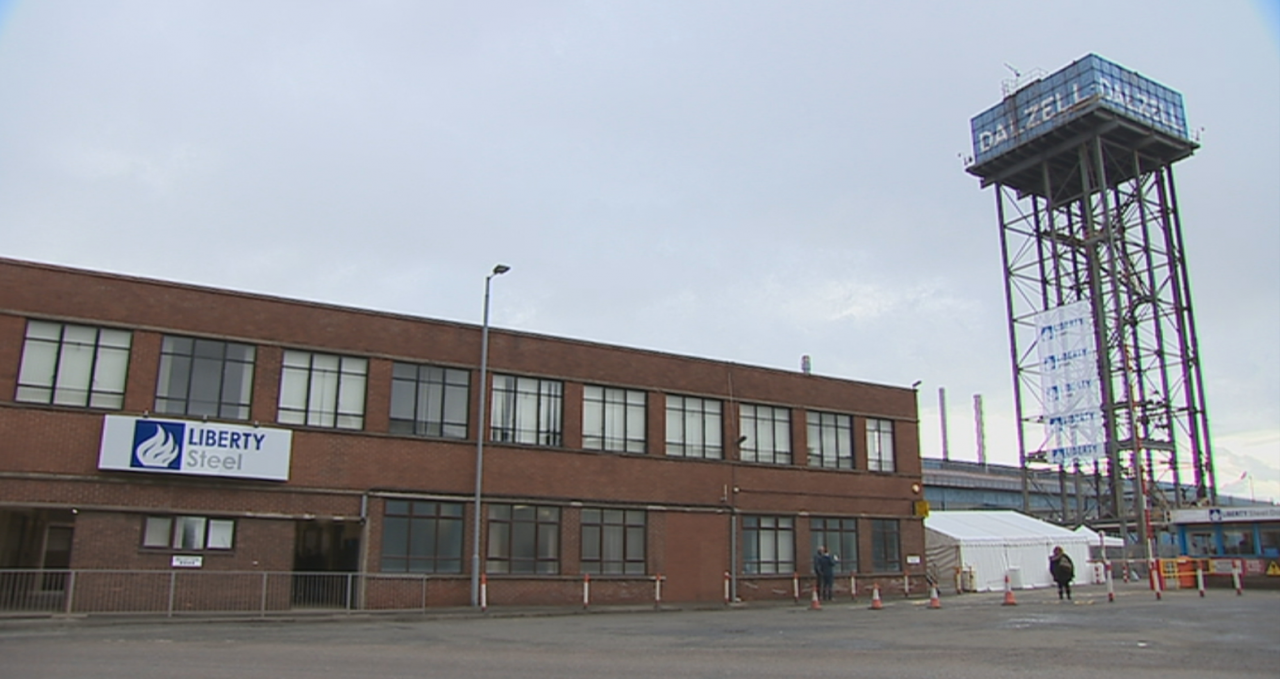A deal made by the Scottish Government with Dalzell steelworks in 2016 was “rushed”, it has been revealed.
Emails involving officials published following a Freedom of Information (FOI) request state that difficulties over the deal were caused by a “rushed advice and decision” at the time.
In March 2016, the Government facilitated the ownership of the Dalzell and Clydebridge steelworks from Longs Steel UK, then a subsidy of Tata Steel, to metals firm Liberty House.
The move was aimed at ensuring that the sites remained open, with jobs being saved.
As part of a back-to-back sale, the Government bought the sites for £1 and immediately sold them to Liberty House.
The firm then took on all existing liabilities, while the Scottish Government agreed to indemnify Longs Steel UK from future claims.
In turn, Liberty House and its parent company provided a continuing and unlimited indemnity to hold the Scottish Government harmless from all historic and future liabilities.
At the time of negotiating the deal, it was acknowledged that the back-to-back indemnities approach was untested due to the novel approach of the transaction in the UK.
At the Scottish Parliament in November last year, MSPs heard that the Government may have broken state aid rules while facilitating the sale.
The deal was reviewed in light of concerns about GFG Alliance, the parent company of Liberty House.
Business minister Ivan McKee told MSPs that a clause in the contract could have broken state aid rules.
An FOI request was submitted by the Scottish Liberal Democrats that asked that all information and documentation held by the Government on whether either Tata Steel, or the Government, have any claim to the land upon which Dalzell steelworks are situated.
In response, an email was provided by the Government in which an official described the events of 2016 as “challenging to say the least”.
In another email, one official underlined the need to clarify the situation, otherwise it could “compound the difficulties caused by rushed advice and decision in 2016”.
The Scottish Government has stated that it “acted at pace” in 2016 on the deal to ensure that steel communities had a future in Scotland.
However, the Scottish Liberal Democrats have criticised the Government’s handling of the deal.
Willie Rennie, the party’s economy spokesperson, accused the Government of “cynical political interests”.
“The SNP’s handling of this entire affair almost leaves me speechless,” said Rennie.
“It smacks of a government with no robust or informed industrial strategy, and one which is willing to throw the taxpayer under the bus in negotiations with big business.
“We knew that the government were working at what a source at the time called ‘breakneck speed’, determined to get something done by the May 2016 parliament election.
“We also knew that Tata was determined to get something done, by passing on its exposure for clean-ups.
“In spite of this, Nicola Sturgeon had the audacity to boast that her deal showed ‘the art of the possible’.
“The only ‘art’ the Government have mastered is to let cynical political interests fold to the pressures of big business. Now they’re having to admit that.”
Rennie called for clarity on the issue.
He continued: “We need answers urgently. If Tata are not responsible for clean-up operations does that mean the costs could fall to the Scottish taxpayers?
“When millions of pounds and the credibility of the Scottish Government’s industrial policy are at stake, we deserve politicians who can give clear answers about what all of this means for the Scottish public.”
A Scottish Government spokesperson said: “The Scottish Government acted at pace in 2016 to support a transaction involving Tata Steel and Liberty House to ensure steel communities in Scotland had a future.
“This saved the Dalzell and Clydebridge steel works, rescued more than 100 jobs and retained steel plate production in Scotland.
“Subsequently, ministers were advised that one specific part of the contract arrangement may not comply with state aid rules.
“This finding was reported promptly to the Scottish Parliament and means in the unlikely event of the indemnity ever being called upon, no money would legally have to be paid out by the Scottish Government.”
Follow STV News on WhatsApp
Scan the QR code on your mobile device for all the latest news from around the country


 STV News
STV News























